-
NHS
-
Oldham Services
-
Shop
-
Help & Advice

From £5.10 From £4.65
Variety of delivery options including next day & free delivery.
Pharmacy, clinic and prescribers based in Greater Manchester.
Start your treatment with a quick and free online consultation.
Variety of delivery options including next day & free delivery.
Pharmacy, clinic and prescribers based in Greater Manchester.
Start your treatment with a quick and free online consultation.
Fill in a quick online consultation for our licensed pharmacists to review.
Our pharmacists will review your treatment to ensure it’s suitable.
Your treatment will be delivered to your door quickly & discretely.
Freederm Gel is an effective treatment for mild to moderate inflamed acne, including inflamed pimples and pus-filled spots. It is especially useful for facial, back, and chest acne. The active ingredient, nicotinamide, is related to Vitamin B3 and is a proven anti-inflammatory. This reduces redness and inflammation, as well as tenderness, in areas affected by acne.
You can buy Freederm Gel 25g online from our acne treatment clinic. Just complete a quick online consultation form, and our pharmacists will review it for suitability. Once approved, your medication will be delivered straight to your door, allowing you to start your treatment promptly.
Freederm Gel is a cooling translucent gel which contains nicotinamide that visibly reduces the appearance of inflamed, red spots and pimples. Unlike antibiotics, nicotinamide reduces redness and spot size without the risk of bacterial resistance. It is clinically proven in treating inflamed pimples and spots, providing relief and aiding in the skin’s natural healing process.
If you have sensitive skin, it’s advisable to test the gel on a small area first and wait 24 hours before applying it to larger areas. This is particularly important if your skin is very sensitive or if you are using it on your face, as is common with any new treatment.
Freederm Gel should be applied to the skin twice daily, using the following steps:
Consistency is key, so continue using the gel daily, even if you do not see immediate results, as noticeable improvement may take several weeks. If after 12 weeks there is no significant change, or if your condition worsens, consult your GP or pharmacist for further advice.
Freederm Gel is suitable for adults, including the elderly. However, it should not be used if you:
Consult your GP, midwife or pharmacist if you are pregnant or breastfeeding or if you have any concerns.
Freederm Gel is generally well-tolerated, but some users may experience side effects:
Contact your doctor or pharmacist if you experience any side effects, including those not listed. If you experience severe side effects or symptoms of an allergic reaction, stop using the product and consult your GP, call 111, or visit the nearest Accident & Emergency department. Report any side effects to the MHRA’s Yellow Card Scheme (Medicines and Healthcare products Regulatory Agency). Reporting contributes to the ongoing monitoring of medication safety for all users.
Active ingredients: Nicotinamide (4% w/w).
Inactive ingredients: Aluminium magnesium silicate, hypromellose, citric acid, macrogol lauryl ether, ethanol, and purified water.
If Freederm Gel isn’t suitable for you, there are several other options to consider. Benzoyl peroxide products, such as Acnecide, are effective for reducing bacteria and unclogging pores. You can also get gels that combine benzoyl peroxide with other active ingredients, such as Benzoyl Peroxide and Clindamycin Gel or Duac Gel.
EXCELLENT
Improvement may be seen within a few weeks. However, the full benefits can take several weeks to become apparent, so if there is no immediate improvement, you should persevere with Freederm treatment gel and continue using as directed.
Apply it as soon as you remember unless it is almost time for your next dose. Do not double the dose.
If you already use other spot or acne treatments, please mention this in your online consultation. We will need to ensure no interactions.
There are no specific restrictions on using Freederm Gel during pregnancy or breastfeeding. However, as with any medication, it is wise to consult your GP or Midwife before use, particularly in the first three months of pregnancy.
If Freederm Gel accidentally gets into your eyes or mouth, rinse the area thoroughly with warm water. If irritation persists, seek medical advice from your GP or pharmacist.
If you have sensitive skin, test the gel on a small area first and wait 24 hours before applying it to larger areas. This precaution helps to ensure that your skin does not react adversely to the product.
Store Freederm Gel below 25°C and keep it out of the sight and reach of children. Always replace the cap tightly after use, and do not use it past the expiry date shown on the tube and carton.
Freederm Gel contains nicotinamide, which is not an antibiotic. This reduces the risk of developing antibiotic resistance and focuses on reducing inflammation, swelling, and redness associated with acne, providing an effective alternative to traditional antibiotic treatments.
I highly recommend Freederm Gel for treating mild to moderate acne. It’s really effective at reducing redness and swelling, thanks to its active ingredient, nicotinamide. You’ll likely see great results in a few weeks, especially if you use it consistently twice a day on clean, dry skin. This gel is a fantastic option because it targets inflammation without the risks associated with antibiotics.

Sakib Mohammed
MPHARM
Page content authored by Dr Hussain Ahmad, last reviewed by Sakib Mohammed on 27th August 2024.
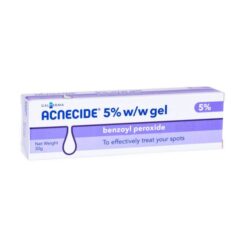
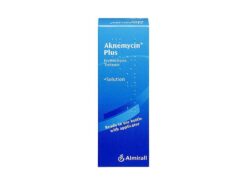
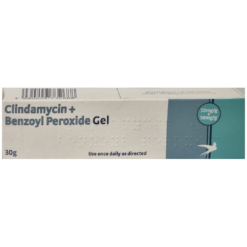
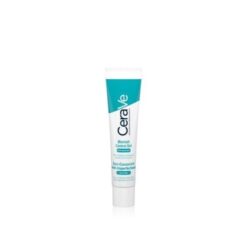

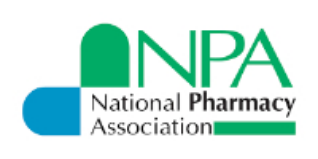
Notifications